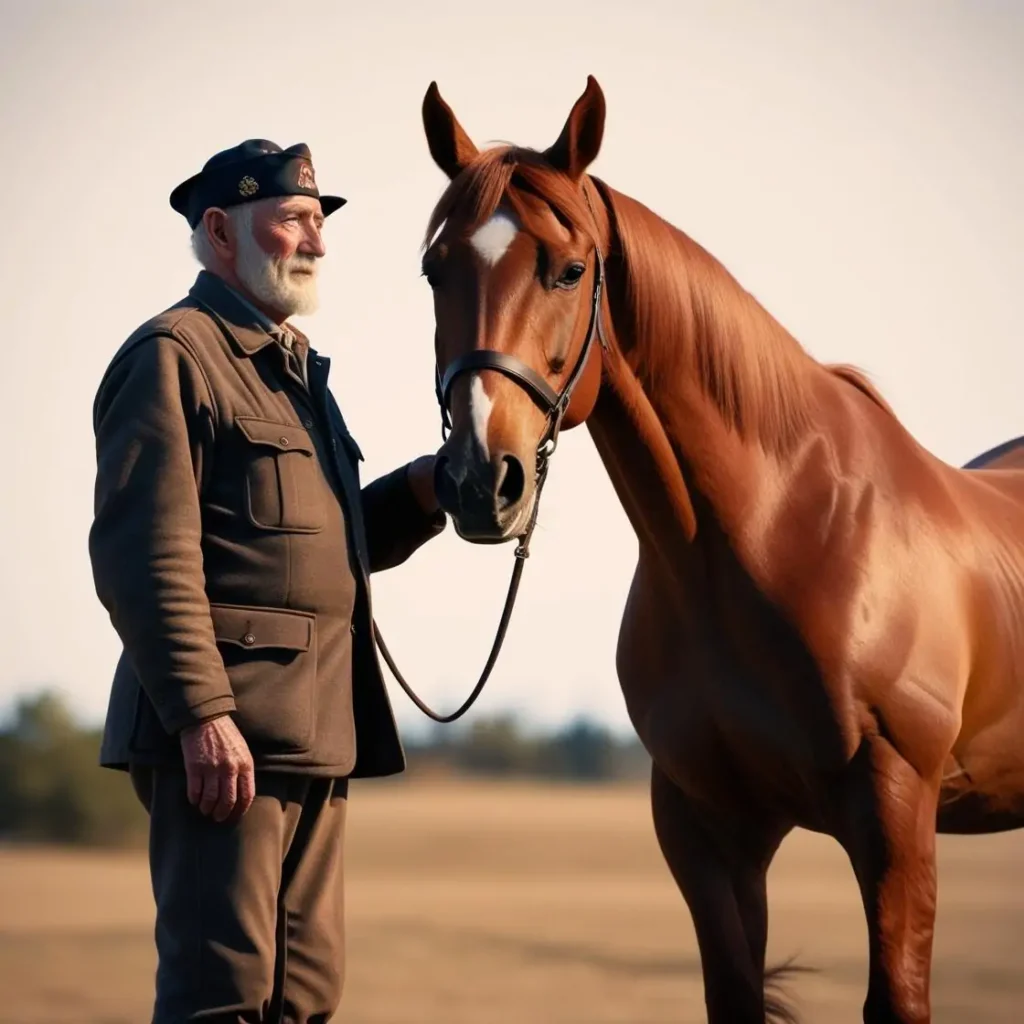Post-traumatic stress disorder (PTSD) is a debilitating condition that affects numerous veterans, impacting their mental health and overall quality of life. Traditional treatment methods, while effective for some, do not always provide the relief needed for others. This is where alternative therapies, such as horse therapy, also known as equine-assisted therapy, step in. This blog post explores how horse therapy serves as a unique and effective path to healing PTSD among veterans.

Understanding PTSD in Veterans
PTSD is a mental health condition triggered by experiencing or witnessing a traumatic event. For veterans, these traumatic events are often linked to combat experiences. According to the U.S. Department of Veterans Affairs, between 11-20% of veterans who served in Operations Iraqi Freedom and Enduring Freedom suffer from PTSD in a given year. Symptoms include flashbacks, nightmares, severe anxiety, and uncontrollable thoughts about the traumatic events.
Managing PTSD is crucial as it can severely affect the everyday life of veterans, influencing their ability to work, maintain relationships, and enjoy life. While medications and traditional therapies like cognitive behavioral therapy (CBT) are common treatments, alternative therapies are gaining recognition for their unique benefits.
What is Horse Therapy?
Horse therapy, or equine-assisted therapy, involves interactions between patients and horses under the guidance of a trained therapist. The therapy includes activities such as grooming, feeding, and handling horses, and sometimes riding. This type of therapy is grounded in the concept that animals can have a profound impact on human emotions and behaviors, providing comfort and promoting healing.
How Horse Therapy Helps Veterans
Promotes Emotional Regulation
Interacting with horses requires patience, calmness, and attention to non-verbal cues. Veterans learn to regulate their emotions to create a peaceful environment for the horse, which in turn helps them manage their own emotional responses. This practice is particularly beneficial for veterans struggling with anger and irritability, common symptoms of PTSD.
Enhances Self-Esteem and Confidence
Successfully working with horses can lead to increased self-esteem and confidence. Veterans often face challenges in civilian life, feeling disconnected from society. Engaging with horses provides a sense of achievement and boosts their confidence. A study published in the Journal of Rehabilitation Research and Development found that veterans who participated in horse therapy reported feeling more capable and confident in handling life's challenges.
Encourages Social Interaction and Trust
PTSD can make social interactions difficult for veterans. Horse therapy encourages social interaction in a non-threatening environment. Veterans work alongside therapists and other veterans, fostering a sense of community and trust. Horses, known for their ability to mirror human emotions, help veterans develop trust and empathy, crucial components for building human relationships.
Reduces Anxiety and Stress
Spending time with horses has a calming effect, reducing anxiety and stress levels. The rhythmic movement of riding a horse can mimic the soothing effects of rocking, known to reduce anxiety. According to a study by the Professional Association of Therapeutic Horsemanship International, veterans reported decreased anxiety and stress after participating in horse therapy sessions.
Statistics Supporting Horse Therapy for PTSD
Several studies underscore the effectiveness of horse therapy for PTSD. A 2015 study by the University of Missouri found that veterans who participated in a six-week equine-assisted therapy program showed significant reductions in PTSD symptoms. Moreover, the Human-Animal Bond Research Institute reports that 74% of veterans who engaged in animal-assisted therapy, including horse therapy, experienced reduced PTSD symptoms and improved mental well-being.
Real-Life Success Stories
Numerous veterans have shared their success stories, attributing their recovery to horse therapy. John Smith, a Marine Corps veteran, struggled with severe PTSD after his deployment. Traditional therapies offered limited relief, but after joining a horse therapy program, he experienced significant improvements in his mental health. John credits the horses with teaching him patience, trust, and emotional regulation, allowing him to reconnect with his family and community.
How to Get Started with Horse Therapy
If you or a loved one is considering horse therapy, here are some actionable steps to begin the journey:
- Research Local Programs: Look for equine-assisted therapy programs in your area. Many organizations specialize in working with veterans, providing tailored programs to meet their needs.
- Consult with a Mental Health Professional: Before starting any therapy, it is advisable to consult with a mental health professional to ensure it aligns with your treatment goals.
- Visit the Facility: Schedule a visit to the therapy facility to meet the staff and observe the horses. Feeling comfortable and safe in the environment is crucial for effective therapy.
- Set Realistic Goals: Work with your therapist to set realistic and achievable goals for your therapy sessions. This will help track progress and maintain motivation.
Conclusion: A Healing Path Forward
For veterans grappling with the aftermath of combat and the challenges of PTSD, horse therapy offers a healing path forward. The unique bond between humans and horses facilitates emotional regulation, builds confidence, enhances social skills, and reduces stress. While horse therapy may not replace traditional treatments, it serves as a valuable complementary approach, providing veterans with an alternative avenue for healing and recovery.
Ultimately, embracing diverse therapeutic options like horse therapy can pave the way for a more holistic approach to mental health, empowering veterans to lead fulfilling lives beyond their service.